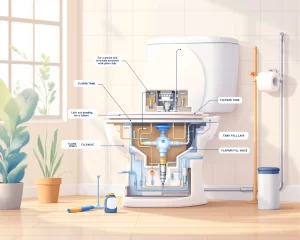INTRO
Welcome to my deep dive on saltwater pools! If you’re thinking about making the switch or simply want to understand more about how they work, you’re in the right place. I’ve gathered insider knowledge and valuable tips to help you decide if a saltwater pool is the right choice for your home. Let’s jump in and embrace the refreshing world of saltwater swimming!
What is a Saltwater Pool?
A saltwater pool is a swimming pool that uses a salt-chlorine generator to produce chlorine from dissolved salt. This method offers a gentler swimming experience with softer water that is kinder to the skin and eyes compared to traditional chlorine pools.
How Does a Saltwater Pool Work?
I often get asked how these pools actually operate. Here’s a quick explanation:
- Salt is added to the water.
- A salt-chlorine generator converts salt into chlorine through the process of electrolysis.
- The chlorine sanitizes the water, keeping it clean and safe for swimming.
Benefits of a Saltwater Pool
Switching to a saltwater system has some great benefits:
- Softer Water: The sensation is gentler on my skin.
- Lower Chemical Costs: I spend less on chlorine.
- Reduced Maintenance: These pools often require less upkeep than traditional chlorine pools.
Saltwater Pool vs. Traditional Chlorine Pool
Deciding between a saltwater pool and chlorine pool depends on personal preferences. While traditional pools need regular chlorine additions, saltwater pools self-generate chlorine, saving me time and money.
Maintenance Requirements for Saltwater Pools
Maintaining a saltwater pool is different from traditional ones:
- Regularly check salt levels.
- Clean the salt cell in the generator.
- Monitor pH levels to ensure a balanced environment.
Common Misconceptions
Many people assume that saltwater pools are completely chlorine-free. Understanding that they do still use chlorine, albeit in a different form, is crucial!
DIY vs. Professional Services
When considering my maintenance options, I realized that while DIY is tempting, professional services provide safety and expertise. The risks of cutting corners can lead to costly repairs down the line.
Importance of Regular Maintenance
I’ve found that regular maintenance extends the life of the pool equipment and ensures the water remains safe. Here’s why it matters:
- Protects pool equipment.
- Ensures water safety for swimmers.
- Saves money on potential repairs.
My Favorite Tools for Saltwater Pool Maintenance
Here are some tools that I rely on to keep my pool in top shape:
- Skimmer Net: Essential for surface debris.
- Pool Brush: Keeps surfaces clean and algae-free.
- Test Strips: Quick checks for balance.
User Experiences: Testimonials
- “I’m amazed at how easy my saltwater pool is to maintain! It feels like I’m swimming in the ocean!” — Sarah L., Lubbock, TX
- “Switching to a saltwater pool has made my summer so much better. No red eyes, just fun!” — Mike R., Lubbock, TX
- “The money I save on chemicals is just the cherry on top! Highly recommend!” — Emma J., Lubbock, TX
Did You Know?
Did you know that saltwater pools can have lower chlorine levels than traditional pools, yet still maintain effective sanitation? This is one of the reasons they can be so much kinder to my skin!
TL;DR Summary
- Saltwater pools self-generate chlorine, offering a gentle swim experience.
- Regular check-ups are essential for maintenance and water balance.
- Professional pool cleaning services can simplify maintenance tasks.
FAQs
1. Can I convert my traditional pool to a saltwater pool?
Yes, converting to a saltwater pool is possible! I recommend consulting with a professional to assess the feasibility based on my pool’s current equipment and setup.
2. Are saltwater pools safe for pets?
Absolutely! Saltwater pools are generally safe for pets, but I always make sure they don’t drink the pool water. It’s crucial to monitor them just to be safe.
3. How often should I check the salt levels in my pool?
I usually check my salt levels every few weeks to ensure they remain within the recommended range. This simple upkeep keeps my pool healthy.
4. What should I do if my salt chlorine generator isn’t working?
If my generator isn’t functioning correctly, I first check for any visible signs of damage and the salt levels. If the issue persists, it’s best to contact a professional for thorough troubleshooting.
5. Can I still swim in a saltwater pool during winter?
Yes! I can maintain swimming even in winter by keeping the water running and ensuring proper winterization. Just remember to adjust the salt and chlorine levels accordingly.
With this information in hand, I hope you're ready to embrace the benefits of a saltwater pool! Happy swimming!





